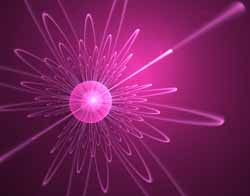Bringing researchers and nuclei together
Nuclear energy is a clean, safe and sustainable way to meet the world's growing energy needs. Currently, most of the world's nuclear power plants rely on nuclear fission. Now, China, the EU, India, Japan, Korea, Russia and the United States have come together to prove the viability of fusion as an energy source. The project International Thermonuclear Experimental Reactor (ITER) is slated to realise an operational nuclear fusion plant in just 10 years. This new era of nuclear energy will require a new generation of scientists trained in nuclear fusion. The EU-funded project 'FUSENET - The European fusion education network' (FUSENET)(opens in new window) successfully developed an active and sustainable collaboration to achieve this, now represented by the legal entity The FuseNet Association. The Association boasts over 40 fee-paying members, including industries, universities and research institutes all over Europe. Membership is also open to non-European organisations. The mission of FuseNet is to stimulate and coordinate fusion education in Europe. This is done by attracting motivated students, providing them with excellent training, and fostering mobility through exchanges, internships and job opportunities. Unlike many programmes that focus on graduate-level studies, FUSENET starts in high school. Project members have supported and organised joint educational activities such as workshops, summer schools and the annual PhD event. FUSENET also developed educational tools such as hands-on laboratories, virtual reality tools, web-based course material and a book on fusion technology. Week-long Master's-level classes were an additional outcome and project activities contributed to the establishment of joint academic criteria for awarding Master's and Doctoral degrees. The project website provides a portal to all fusion education in Europe. It offers educational materials and activities organised by educational level. It also presents fusion news, various FUSENET activities and learning opportunities. In conclusion, FUSENET has successfully developed an active European network that has boosted the quality of fusion education throughout Europe. The FuseNet Association will ensure that the legacy lives on, bolstering nuclear fusion know-how for a leading European position in an emerging new energy sector.



